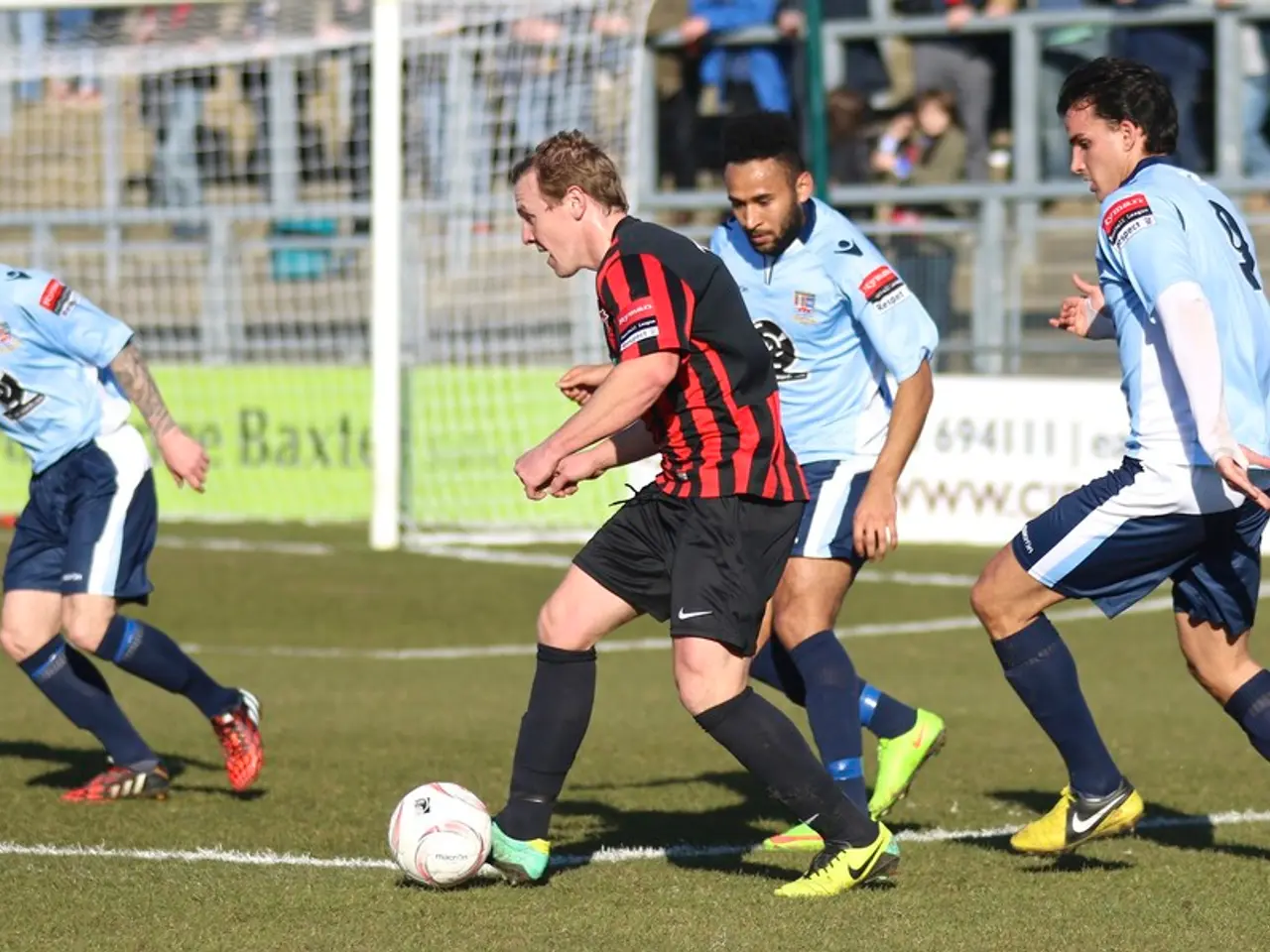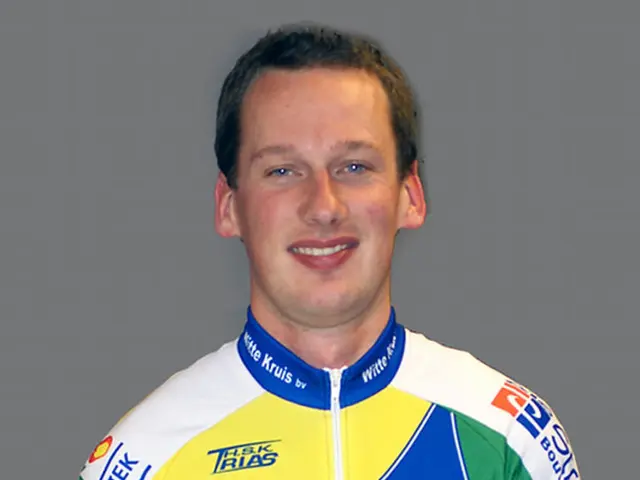Approval granted for alterations in 2025's college football regime
================================================================================
In a bid to enhance the game, promote player safety, and foster sportsmanship, the National Football Foundation (NFF) and the NCAA Football Rules Committee have unveiled a series of rule changes for the 2025 college football season. These changes, which span across player safety, pace of play, sportsmanship, and technology, are designed to bring about quicker play, fairer competition, and improved sportsmanship.
One of the key rule adjustments concerns the crackdown on fake injuries. From now on, if a player feigns injury after the ball is spotted for the next play and receives on-field medical attention, the team will forfeit a timeout. If no timeouts remain, a 5-yard delay-of-game penalty will be imposed. The injured player must sit out at least one play and cannot return until cleared by a medical professional. This measure aims to discourage players from faking injuries to halt the clock or disrupt momentum, a tactic particularly prevalent late in games.
Another notable change pertains to timeout limits in overtime. In the first and second extra periods, teams are now allowed only one timeout each. Starting with the third overtime period, each team gets only one timeout for the remainder of the game. This change is intended to speed up overtime and reduce excessive stoppages.
The committee has also banned celebrations that mimic the firing of guns, rifles, crossbows, or similar devices. Such celebrations will incur an automatic 15-yard penalty for unsportsmanlike conduct, with the aim of cleaning up the sport's image and enhancing sportsmanship.
Referees will now use updated terminology when announcing review results. Instead of saying a call is "confirmed" or "stands," they will say a call is either "upheld" (if not overturned) or "overturned" (if reversed based on video evidence). This change aims to clarify replay outcomes for better communication and transparency.
The committee is also committed to advancing the use of officiating technology to assist officials in making accurate calls and ensuring game fairness.
The overall mission of the committee is to enact rules changes that "enhance the sport, protect the image of the game, and enhance the student-athlete's health and safety," with player safety as the highest priority. Many changes reflect ongoing efforts to reduce injuries, improve fairness, and maintain game flow.
These adjustments, which took effect from the 2025 season opener, also include the prohibition of players using defensive signals that simulate the sound or cadence of offensive starting signals. Return specialists are no longer allowed to make the "T" signal when receiving a kick or punt, and defensive players within a yard of the line of scrimmage may not make quick, abrupt, or exaggerated actions.
In addition, a player attempting to recover a loose ball is now considered a defenseless player, and media timeouts are only allowed after the first and second extra periods. Coach-to-player communications through the helmet will expand to the Football Championship Subdivision, and eye shields in helmets must be clear, not tinted.
These rule changes aim to make college football a safer, fairer, and more sportsmanlike game for all involved.
- The National Football Foundation (NFF) and the NCAA Football Rules Committee have implemented a rule that penalizes teams if a player feigns injury and requires medical attention, as a means to discourage such tactics and maintain game flow.
- In college football overtime matches, each team is now limited to only one timeout per extra period, starting from the second overtime, with the aim of speeding up games and reducing excessive stoppages.
- The committee has banned celebrations that imitate the usage of guns, rifles, crossbows, or similar devices, aiming to clean up the sport's image and foster sportsmanship.
- To ensure transparency in replay outcomes, referees will now announce review results using updated terminology, saying either a call is "upheld" or "overturned" instead of "confirmed" or "stands."






